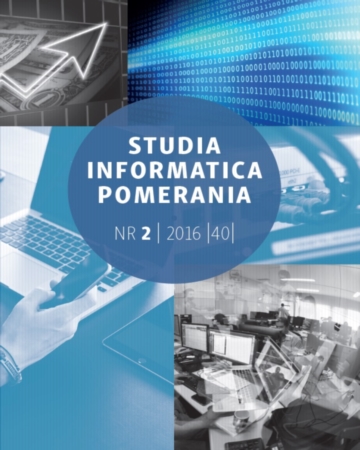
ISSN: 2451-0424
eISSN: 2300-410X
OAI
DOI: 10.18276/si.2016.39-10


Issue archive /
nr 39
Struktura funkcjonalna zgamifikowanego systemu zarządzania nauczaniem
(The functional structure of a gamified learning management system)
| Authors: |
Jakub
Swacha
Uniwersytet Szczeciński, Wydział Nauk Ekonomicznych i Zarządzania |
| Keywords: | IT in education gamification Learning Management System LMS |
| Data publikacji całości: | 2016 |
| Page range: | 11 (109-119) |
Abstract
Gamification, as a form of inducing intrinsic motivation by using elements characteristic for games, is gaining more and more interest in educational institutions and among teachers. Notwithstanding the increasing number of available gamification textbooks, its practical implementation still requires substantial effort on instructor’s behalf. Although the popular Learning Management Systems already provide modules allowing to include gamification elements within the courses, making use of them is labor-intensive, and the range of provided features is very limited. The solution is to use a Learning Management System not only having a wide range of gamification features embedded already at its design stage, but also suitable for easy use by course designers and teachers. This paper proposes a detailed vision of the functional structure of such a system.
Download file
Article file
Bibliography
| 1. | Avgeriou, P., Retalis, S., Skordalakis, M. (2003). An Architecture for Open Learning Management Systems. |
| 2. | W: Y. Manolopoulos, S. Evripidou, A.C. Kakas (red.), Advances in Informatics (s. 183–200). Heidelberg: Springer. DOI: 10.1007/3-540-38076-0_13. |
| 3. | Hamari, J., Koivisto, J., Sarsa, H. (2014). Does Gamification Work? – A Literature Review of Empirical Studies on Gamification. W: Proceedings of the 47th Hawaii International Conference on System Sciences (s. 3025–3034). |
| 4. | Waikoloa: IEEE. DOI: 10.1109/HICSS.2014.377. |
| 5. | Kapp, K.M. (2012). The Gamification of Learning and Instruction: Game-Based Methods and Strategies for Training and Education. San Francisco: Pfeiffer. |
| 6. | Marczewski, A. (2014). Defining gamification – what do people really think?. Pobrano z: http://www.gamified.uk/2014/04/16/defining-gamification-people-really-think/ (9.12.2015). |
| 7. | Muntean, C.I. (2011). Raising engagement in e-learning through gamification. W: Proceedings of the 6th International Conference on Virtual Learning (s. 323–329). Cluj-Napoca: ICVL. |
| 8. | Swacha, J. (2014). An Architecture of a Gamified Learning Management System.W: Y. Cao, T. Väljataga, |
| 9. | J.K.T. Tang, H. Leung, M. Laanpere (red.), New Horizons in Web Based Learning (s. 195–203). Cham: Springer. DOI: 10.1007/978-3-319-13296-9_22. |
| 10. | Swacha J. (2015). Gamifikacja w nauczaniu programowania: przesłanki i dostępne rozwiązania. W: P. Kosiuczenko, M. Śmiałek, J. Swacha (red.), Od procesów do oprogramowania – badania i praktyka (s. 15–26). Warszawa: Polskie Towarzystwo Informatyczne. |
| 11. | Swacha J., Baszuro P. (2013). Gamification-based e-learning platform for computer programming education. |
| 12. | W: N. Reynolds, M. Webb (red.), Learning whileweareconnected. Vol. 1: Research papers (s. 122–130). Toruń: Wydawnictwo Naukowe UMK. |
| 13. | Werbach K., Hunter D. (2012), For the Win: How Game Thinking Can Revolutionize Your Business. Philadelphia: Wharton Digital Press. |